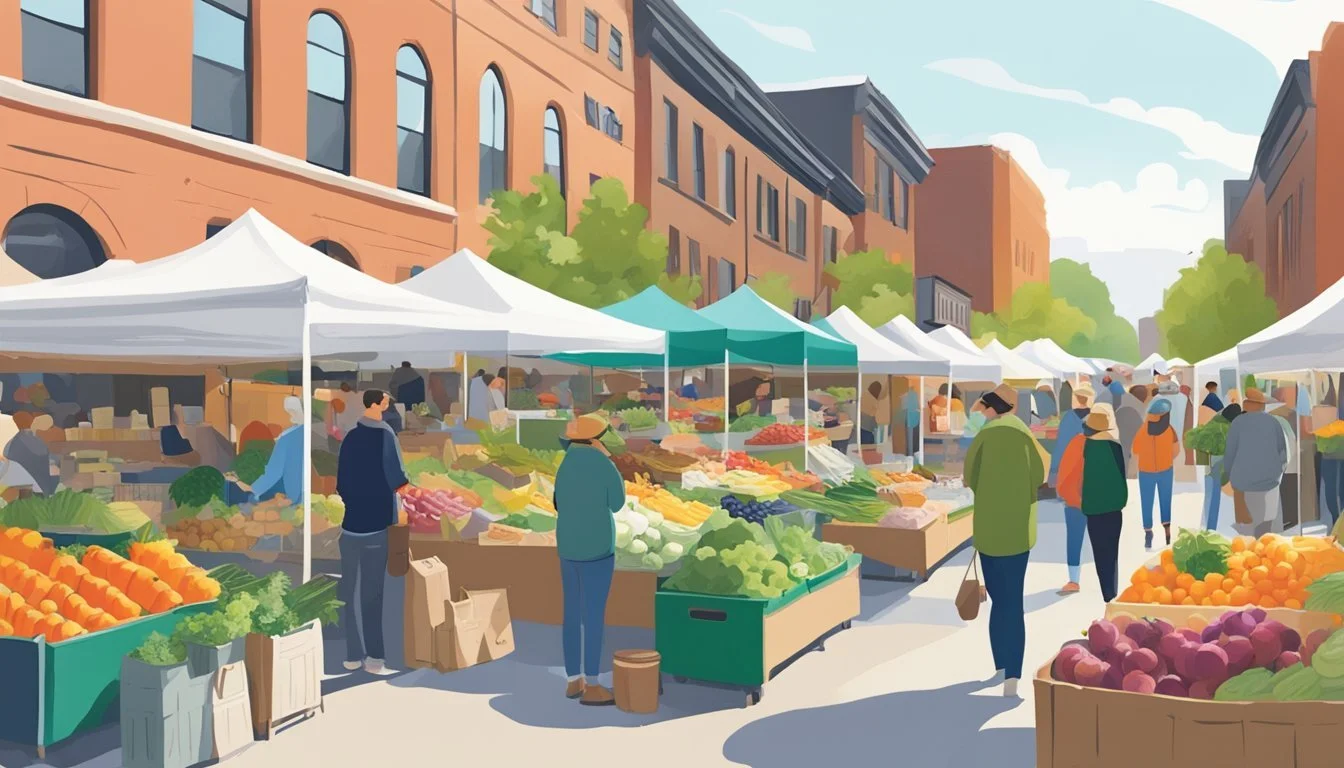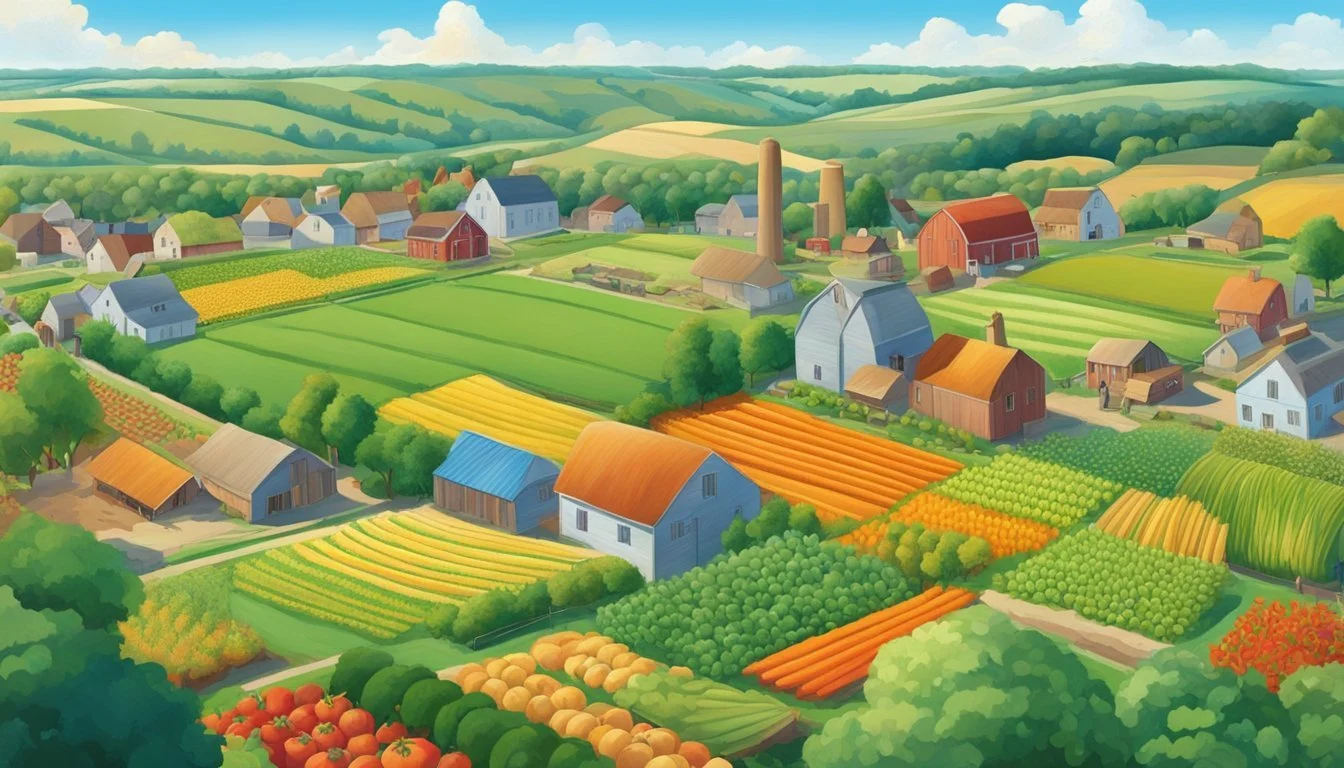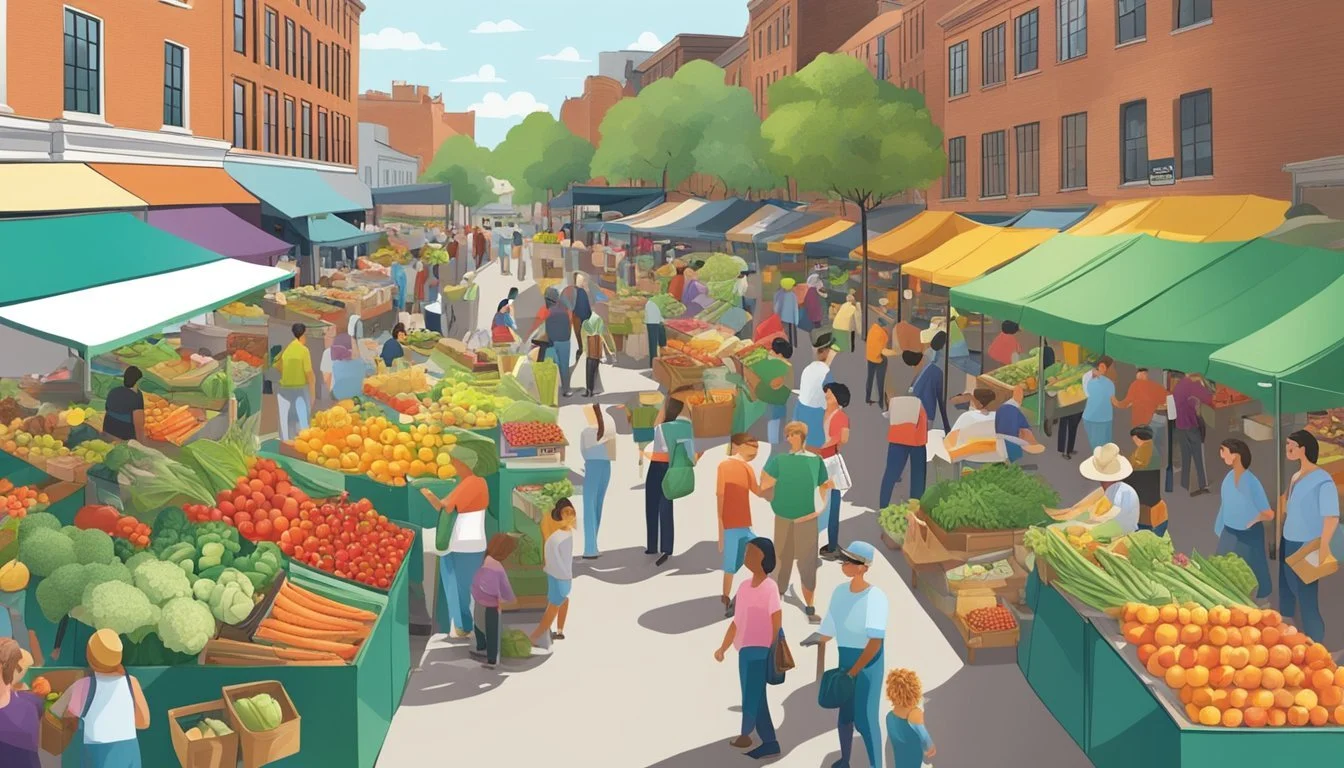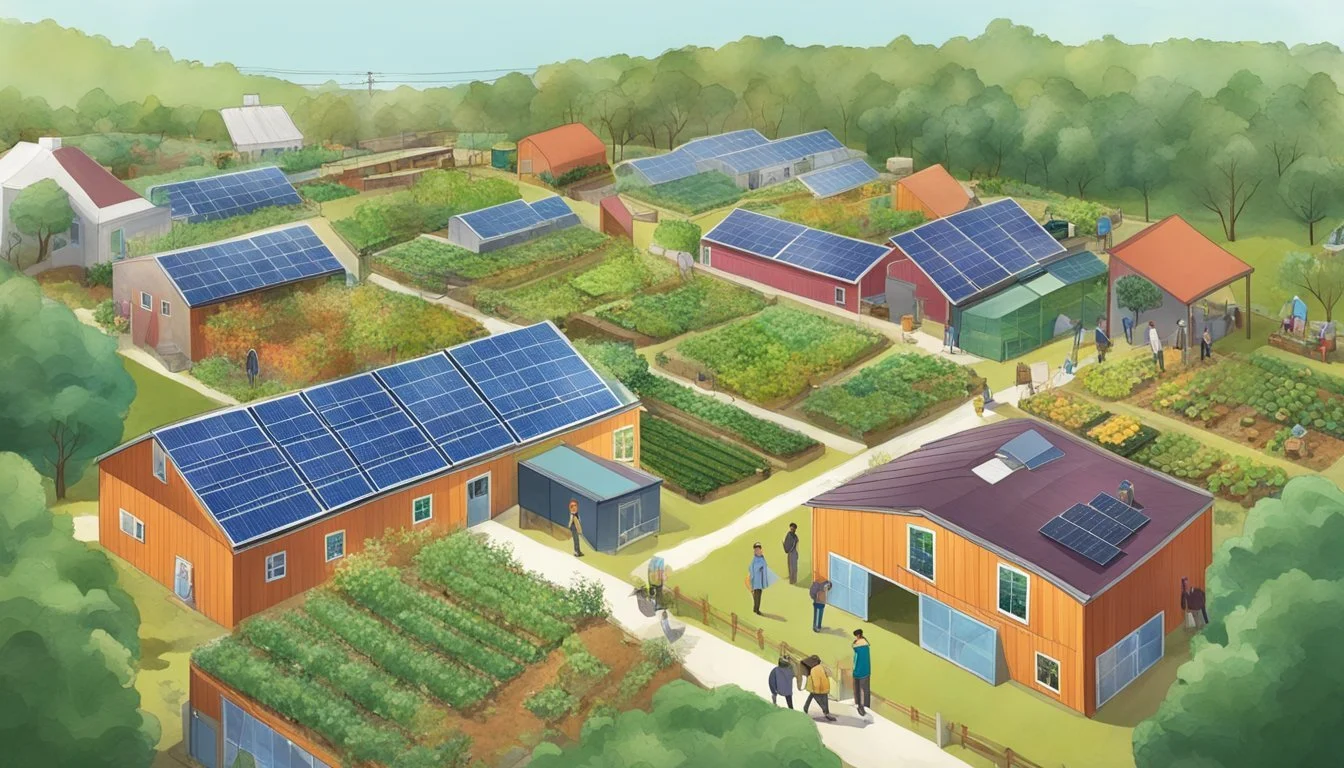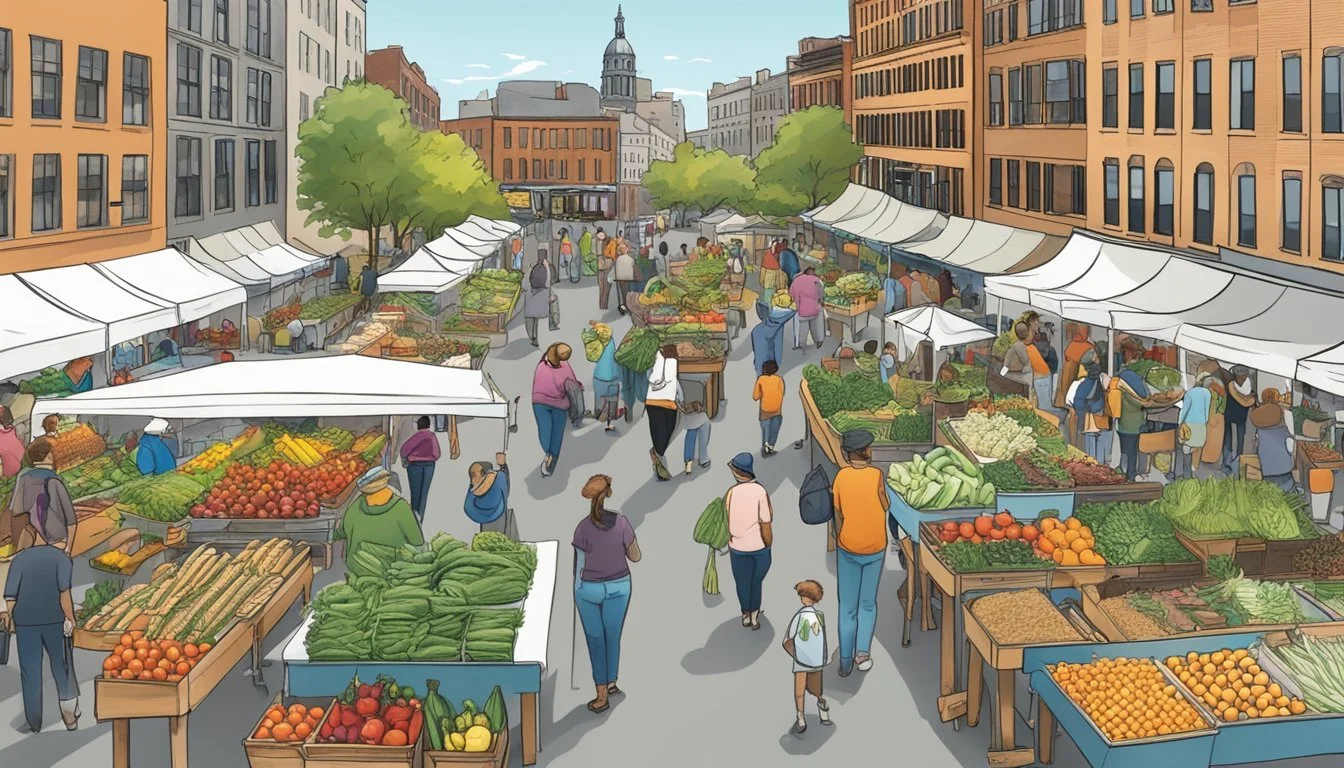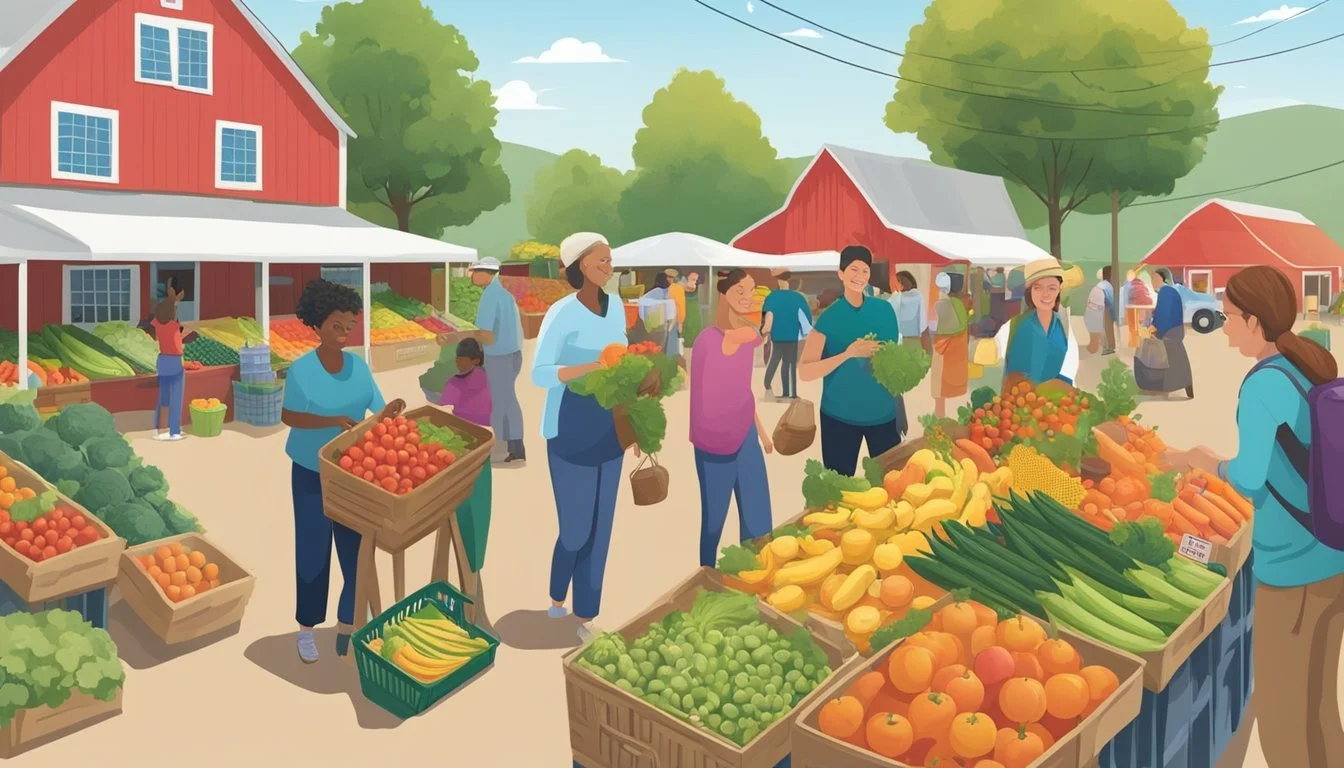Community Supported Agriculture (CSA) in Cambridge, MA
A Guide to Local Farm Partnerships
Community Supported Agriculture (CSA) presents a model that bridges the gap between consumers and their food sources, fostering a close-knit relationship between members and local farms. In Cambridge, Massachusetts, CSAs play a significant role in promoting sustainable agriculture and providing residents with fresh, locally-sourced produce. Shareholders of CSAs in this historic city typically invest in a farm's production at the beginning of the season, and, in return, receive a share of the yield on a regular basis, encompassing an array of vegetables, fruits, and herbs.
Cambridge's commitment to supporting CSAs reflects its dedication to enhancing food security, advancing climate justice, and nurturing community resilience. Several CSA farms in and around Cambridge offer various subscription plans that cater to the preferences of local consumers, with options for weekly or monthly payments, and in some cases, require participation in farm activities. These partnerships underscore the city’s pursuit of developing a robust local food system and promoting healthy eating habits.
In addition to traditional produce shares, some CSA programs in Cambridge area include eggs and specialty items, sourced from numerous regional farms. This system not only bolsters the local economy but also educates the community on the importance of agriculture. Engagement with CSAs enables Cambridge residents to experience the ebb and flow of farming seasons, appreciate the effort behind food production, and enjoy nutrient-rich foods that contribute to their overall well-being.
Understanding CSA
Community Supported Agriculture (CSA) in Cambridge, MA, offers a model through which consumers invest in local farm operations upfront and enjoy the bounty of the harvest throughout the season. This connection fosters local food consumption and promotes a sustainable agricultural economy.
Concept and Benefits
CSA operates on a membership basis, where individuals or families purchase a share of the expected harvest from local farmers. Members typically pay at the start of the growing season for a weekly supply of fresh produce, directly linking them to the local food system. This model offers numerous benefits:
Strengthened local economies: By paying farmers at the beginning of the season, members provide upfront capital to cover anticipated costs of farm operations.
Fresh, seasonal produce: Members receive regular deliveries of fresh, typically organic fruits, vegetables, and sometimes herbs.
Shared risks and rewards: Members share in both the abundance and the potential shortfalls of farming, due to weather or other factors.
CSA Models
CSAs in Cambridge, MA, operate under a few different structures:
Traditional model: Participants pay upfront for the season and receive weekly or bi-weekly shares of the farm's produce throughout the growing season.
Flexible payments: Some farmers offer the ability to accept weekly or monthly payments to accommodate different budget levels.
Workshare CSA: Requires members to contribute a certain number of hours working on the farm in exchange for their produce.
Subsidized shares: Certain CSAs explore models to improve diet quality and accessibility by offering subsidized shares for those who qualify.
CSAs can vary widely in their offerings and operations, but they all serve to promote a closer relationship between consumers and their food sources.
Local CSA Farms in Cambridge
Community Supported Agriculture (CSA) provides residents of Cambridge, MA with fresh, locally-grown produce directly from nearby farms. These CSA programs, often family-owned and dedicated to sustainable agriculture, allow members to invest in the local farming community while enjoying the benefits of healthy vegetables and other farm products.
Warner Farm
Warner Farm has been practicing sustainable agriculture for over 150 years and represents a pivotal part of the CSA farms serving Cambridge. Members receive a diverse array of crops, reflecting the season's bounty and supporting local agriculture initiatives.
Siena Farms
Siena Farms is a family-owned vegetable farm that sprawls over 75 acres. They offer a CSA program that not only provides fresh, locally-sourced produce to Cambridge residents but also fosters a connection between the farm and the community.
Red Fire Farm
With a commitment to organic farming, Red Fire Farm brings quality and sustainability to the forefront. Their CSA shares are known for an abundance of organic vegetables, offering a tangible taste of local agricultural work to their Cambridge members.
Chestnut Farms
Chestnut Farms is a family-owned farm that is dedicated to providing ethically raised meats through their CSA shares. Their offering includes a range of meats, catering to the Cambridge community who values local, sustainable, and family-run agricultural ventures.
Operating a CSA
In Cambridge, MA, operating a CSA involves specific structures for member involvement and logistics. Members invest in the farm's production while the farm commits to providing fresh, locally-grown produce.
Membership and Shares
When someone joins a CSA, they purchase a share of the farm's harvest in advance. This model provides the farm with needed capital at the start of the growing season and entitles the member to a portion of the produce throughout that period. Members typically pay for the season up-front, although some farms allow for weekly or monthly payments. This monetary commitment underpins the farm share program and solidifies the partnership between the farm and its members.
Delivery and Pick-Up Options
CSAs offer various delivery and pick-up options to cater to members' convenience. Most often, members receive their shares through weekly pick-up locations at designated areas or the farm itself. Some CSAs go further by delivering directly to the member's home. The choice between delivery and pick-up influences the operational logistics and member satisfaction. Farms prioritize delivering peak freshness, often coordinating times and locations that best preserve the quality of their freshly harvested produce.
Seasonal Produce Offered
Community Supported Agriculture (CSA) in Cambridge, MA provides an abundance of fresh, seasonal produce directly from local farms. Members can expect a diverse selection, varying with the time of year and local growing conditions.
Vegetables
Local CSAs offer a variety of vegetables throughout the growing season. Starting in the spring, members are likely to receive:
Peas: Freshly picked and perfect for salads or light steaming.
Corn: Sweet and juicy, available during the height of summer.
As the season progresses, a range of tomatoes becomes available:
Tomatoes: Sliced for sandwiches or salads.
Cherry Tomatoes: Ideal for snacking or adding to cold dishes.
Fruits
Fruit offerings from Cambridge CSAs typically include an array of options like:
Strawberries: Early summer brings baskets of sweet, ripe strawberries.
Seasonal availability will see an expanding fruit selection as local conditions allow.
Herbs and Flowers
Herbal and floral additions are commonly included in CSA shares for both their flavors and aesthetics:
Herbs: Freshly cut, ready to enhance any meal with vibrant flavors.
Often, farms will also incorporate ornamental flowers:
Flowers: Bright and fragrant, these can add color to homes while supporting local pollinators.
Beyond Produce
While produce is a cornerstone of Community Supported Agriculture (CSA) programs, many CSAs in the Cambridge area also cater to consumers seeking a broader range of local and sustainably-raised products, including meats and dairy.
Meat and Livestock
CSAs near Cambridge offer a variety of meat options that cater to the tastes and ethical concerns of the community. Members can find a range of grass-fed meats such as beef and lamb, known for their health benefits and sustainable farming practices. Additionally, locally raised poultry provides customers with the assurance that they are consuming high-quality chicken, often raised on small-scale farms with attention to animal welfare.
Dairy Offerings
Similarly, CSAs provide an array of dairy products. Fresh milk from local dairies is available, boasting the advantage of being sourced from well-cared-for cows. Dairy offerings often extend beyond milk, with some CSAs offering products such as cheese and yogurt – a testament to the variety and richness of local, community-supported agriculture.
Sustainability and Practices
Community Supported Agriculture (CSA) programs in Cambridge, MA, focus on enhancing sustainability and employing practices conducive to a healthy ecosystem and community. These include embracing organic methods and benefiting the environment and local population through small-scale farming.
Organic and Sustainable Methods
CSA in the Cambridge region emphasizes the use of organic and sustainable growing practices. These farms avoid synthetic pesticides and fertilizers, instead opting for natural alternatives that foster soil health and biodiversity. Sustainable practices, such as crop rotation, green manures, and biological pest control, are integral to their operations, ensuring that the agriculture has minimal negative impact on the environment. The commitment to sustainability helps to secure long-term food security for the community.
Organic Practices: No synthetic inputs, promoting soil health
Sustainability: Crop rotation, composting, reduced carbon footprint
Small-Scale Farming Benefits
The small-scale nature of CSA farms around Cambridge offers numerous benefits. These operations are more adaptive and can implement innovative sustainable practices on a level that is often unattainable for larger agricultural systems. Small-scale farms tend to foster closer connections between consumers and their food sources, leading to heightened awareness and appreciation for sustainable agriculture.
Close Community Ties: Direct farmer-consumer relationships
Adaptability: Quick implementation of eco-friendly practices
Community Engagement
Community engagement in Cambridge's Community Supported Agriculture (CSA) farms manifests through various events and educational initiatives, as well as through numerous volunteering opportunities. These efforts aim to strengthen relationships between local farms and community members, fostering a sense of partnership and commitment to sustainable agriculture.
Events and Education
CSA farms in Cambridge host events designed to educate members about sustainable farming practices and the seasonal nature of local produce. They offer workshops on topics such as food preservation, composting, and organic gardening, directly linking the community with the origins of their food. Farmers markets, often in collaboration with CSAs, serve as hubs for these activities, providing interactive platforms for community members to learn and engage.
Volunteering Opportunities
Volunteering at a CSA farm provides community members with hands-on experience in agriculture and an opportunity to participate directly in food production. Some CSA farms in the Cambridge area invite members to work a certain number of hours on the farm, enabling a deeper understanding of the farming process and bolstering the relationship between consumers and growers. This partnership not only educates volunteers on the intricacies of farming but also reinforces the CSA model's foundation on community support and involvement.
Challenges and Considerations
Community Supported Agriculture (CSA) in Cambridge, Massachusetts, faces several significant challenges that are intrinsic to its operation in New England. Seasonality and local economic factors play pivotal roles in shaping the success and sustainability of CSA programs. These topics are explored in the following subsections.
Weather and Climate Impact
New England's weather can be highly unpredictable, with winters that are often harsh and summers that vary from mild to sweltering. CSA operations must plan for these fluctuations to ensure the survival and health of crops. For instance, an early frost can drastically shorten the growing season, limiting the availability of produce for CSA shareholders. Moreover, livestock farms must provide suitable shelter and care for animals during extreme weather, which can increase operational costs and complexity.
Climate considerations for New England affect both crop selection and growing techniques. CSAs need to invest in climate-resilient varieties and potentially incorporate greenhouse farming to mitigate climate risks.
Economic Sustainability
Economic sustainability is paramount for the continuation of CSA models. The fixed upfront cost of a CSA share can be a barrier for some individuals; hence, CSAs in Cambridge may consider offering subsidized shares or payment plans to diversify their consumer base and improve accessibility.
Alongside consumer-related financial structures, the cost of production poses a significant challenge. Input costs such as seeds, feed for livestock, labor, and land maintenance must be carefully balanced against income from shareholders to maintain viability. Additionally, competition with larger, non-local producers can drive CSA prices up, making market positioning more challenging.
Farmers may seek innovative business practices such as partnering with other local food producers or engaging in community events to enhance economic stability and consumer loyalty. It is essential for these agricultural establishments to have robust financial planning and a strong connection with their community to thrive amidst the economic pressures.
How to Participate
Participating in a CSA offers individuals the opportunity to directly support local farms and receive fresh, healthy food regularly. This involvement promotes community engagement and helps sustain regional agriculture.
Finding a Local CSA
Individuals can find a CSA in Cambridge, MA, by exploring local farmer's markets or searching online databases such as LocalHarvest. They should look for CSAs that partner with area farms, ensuring the produce is fresh and locally sourced. It's important for participants to consider the Health Incentives Program (HIP) to potentially benefit from assistance programs that make CSA shares more affordable.
Signing Up
To join a CSA, interested parties typically need to complete a sign-up process which may include the following steps:
Select a CSA: Choose a plan that suits dietary preferences and the desired share size.
Subscribe: Fill out a subscription form, which can often be found on the CSA's website.
Payment: Make the necessary payment, which can be a single upfront fee or periodic installments, depending on the CSA's structure.
Pick-up Schedule: Familiarize oneself with the pick-up schedule to know when and where to collect the produce.
Providing Feedback
Once enrolled, members can provide feedback to help shape the future of their CSA. Through surveys, direct communication, or attendance at community meetings, their feedback can influence the variety of produce selected, the planning of healthy food options, and other service aspects. Some CSAs also offer newsletters which often feature requests for member feedback as a way to foster a dialogue between the consumers and the farmers.
Supporting Local Agriculture
Community Supported Agriculture plays a crucial role in strengthening Cambridge, Massachusetts' local food systems and underscores a growing advocacy movement.
Role of CSA in Local Food Systems
Community Supported Agriculture (CSA) models are integral to the local food systems around Cambridge, MA. Participating in a CSA allows the community to directly support local farmers and receive a share of the season's harvest. This model ensures that the profits stay within the local economy and helps maintain the viability of local agriculture. CSA members typically receive a weekly basket of fresh produce, contributing to the health and food security of the community while reducing the carbon footprint associated with long-distance food transport.
Local Impact: By engaging with CSAs, consumers play a part in preserving farmland and fostering environmental stewardship.
Economic Benefits: Direct consumer investment in CSA shares provides farmers with upfront capital for the growing season.
Advocating for CSAs
Advocacy for CSAs is focused on establishing a closer connection between people and their food sources. It aims to educate the public on the benefits of active participation in the local food system. The mission of many local CSA programs includes promoting food security and climate justice through sustainable agricultural practices. Advocates often partner with organizations to spread awareness and increase accessibility to CSA shares, thus strengthening the local food economy.
Mission-Driven: CSA advocacy often dovetails with larger goals of sustainability and community resilience.
Educational Outreach: Efforts include workshops, community events, and partnerships with educational institutions to highlight the importance of supporting local agriculture.
Advocacy for CSAs is multifaceted, focusing not only on economic benefits but also on the environmental and social advantages of maintaining robust local food systems. It's through these consistent and informed efforts that the people of Cambridge can contribute to a sustainable future for local agriculture.
Frequently Asked Questions
What is Community Supported Agriculture (CSA)?
Community Supported Agriculture (CSA) is a model of food production and distribution that directly connects consumers with local farms. Members pay up-front for a share of the season's harvest and receive regular distributions of fresh produce.
Are CSA products organic?
Many CSAs in Cambridge, MA offer organic produce, but it varies by farm. Consumers interested in organic options should inquire directly with the CSA to confirm their farming practices.
How does delivery work?
Delivery policies vary. Some CSAs provide weekly delivery to a set location for pickup, while others may offer home delivery services. It's important to confirm with the CSA about their delivery or pickup options.
Can I customize my share?
Shares typically come in a standard set of selections, but customization may be available. Some CSAs allow members to choose from available produce each week, while others provide a set box of goods.
Is CSA a form of sustainable agriculture?
Yes, CSAs support sustainable agriculture by reducing food miles, encouraging crop diversity, and fostering direct relationships between consumers and farmers, thus enhancing community resilience.
How do I join a CSA?
Prospective members usually sign up through the farm's website. Many CSAs have waitlists, so it's advised to register early. Payment is often required upon registration, though some farms offer flexible payment plans.

